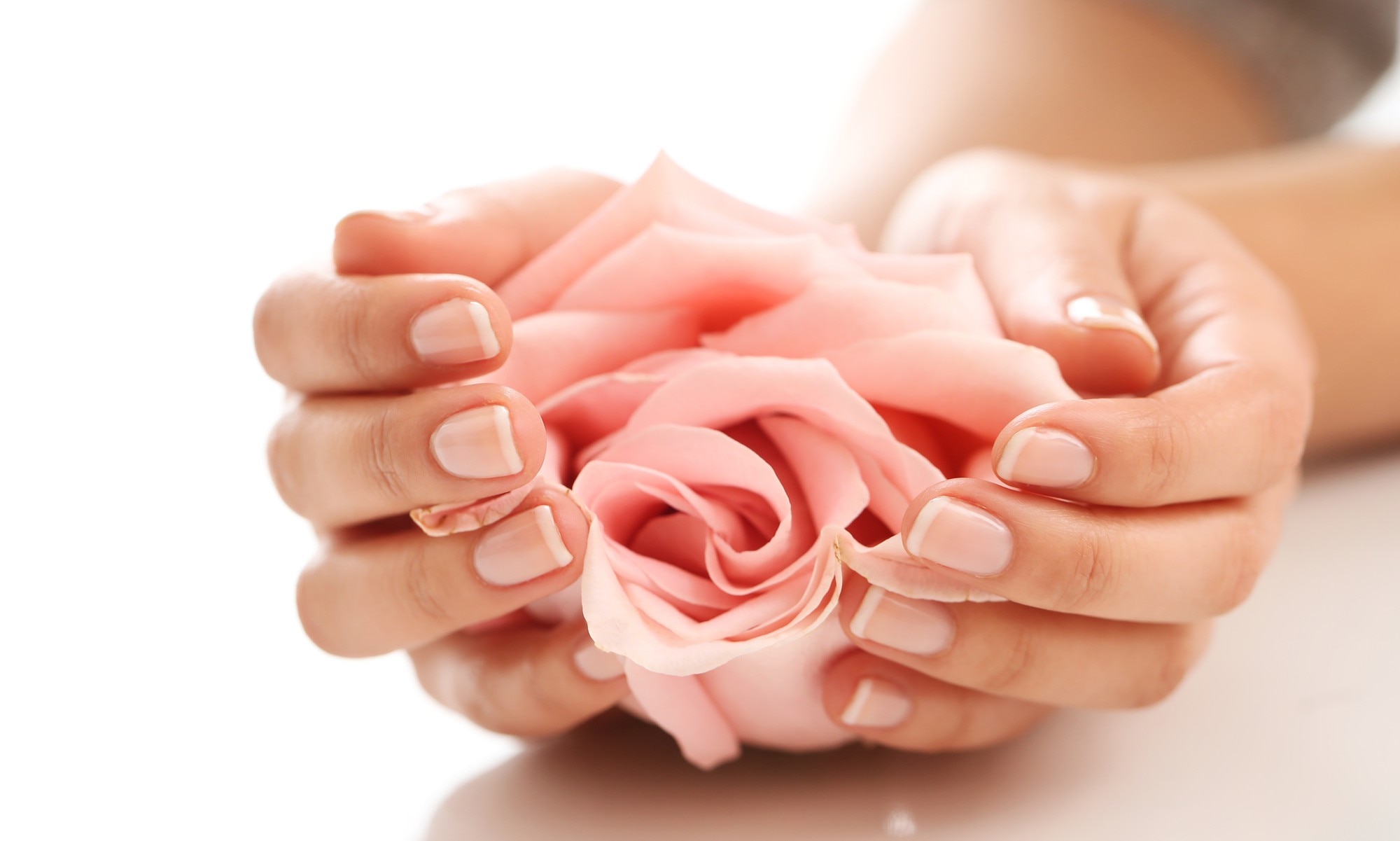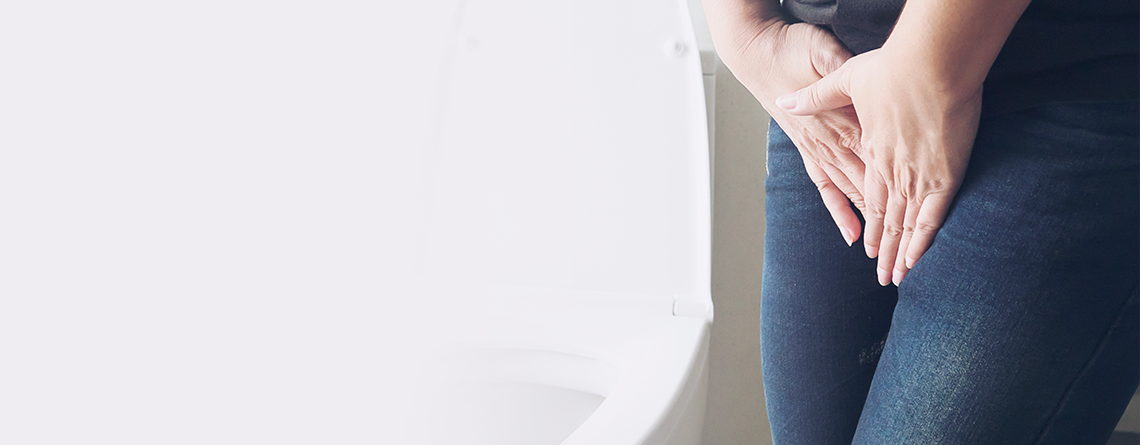We need to speak more about vaginal health. There we said it. Your vagina is a gift that not only connects you with your inner spirit but also with the outside world. It is a vital reproductive organ that brings forth life into the world and plays a crucial role in sexual pleasure. Yet, how many of you remember learning about the best ways to care for it at school as part of sexual health education or from your parents at home?

It is a topic that for years we were conditioned to believe should be uttered in whispers, never aloud. We associated the beauty and natural mechanisms of our body with shame and attached stigma to it. Which is why so many young girls and women struggle to open up about their vaginal health issues not only with their immediate family but also with seeking the right help with a gynecologist or urologist when the situation demands it.
At You Care, we believe that your vaginal care is an important aspect of your health that needs attention and the simple knowledge of the best lifestyle practices can go a long way in helping you maintain optimum vaginal health. Let’s look at some mistakes to avoid when it comes to caring for your vagina.
Table of Contents
ToggleStop excessively cleaning your vagina with chemicals
https://giphy.com/gifs/schittscreek-comedy-pop-tv-26hkhKd2Cp5WMWU1O
GIF credit: Giphy
We are living in an age and time where feminine hygiene products are taking over the world. Millions and millions of dollars are spent trying to convince women that the vagina needs these products to stay healthy and clean. We want to bust this myth right here.
But first let’s begin by understanding the anatomy of the vagina.
The vagina is the internal portion of the female genitalia. The vulva is the external portion, which includes the clitoris, the clitoris hood, the labia majora and labia minora, and the vaginal opening.
The vagina is a self-cleaning internal organ that does not require any special cleaning products. Yes, you may want to clean the vulva, which is the outer portion that surrounds the entrance to the vagina. It can help you feel clean and boost your confidence. But clean the vulva lips gently and the right way is important. All you need is just warm water. If you want to take this a step further, you can use a mild, unscented organic, and chemical-free soap. Ensure to rinse the vulva and then pat the area dry. DO NOT put soap into the vagina.
What happens when you use chemical products to clean your vagina?
Excessive cleaning your vagina with chemical products may lead to inflammation and infections. But most importantly it may change the pH of the vagina. Yes, don’t be shocked. Your gut isn’t the only one with a microbiome of its own. An intelligent and complex colony of good bacteria and other microbes also exists in the vagina that help keep it clean and healthy.
A balanced vaginal pH needs to stay in the range of 3.8 – 4.5. Using harsh soaps, chemical feminine washes, or irrigation methods like douching can throw the vaginal pH out of balance and create the perfect environment for infection-causing bacteria to thrive, causing discomfort and unpleasant odors.
What if you have excess discharge or bad odor?

It is your body’s biofeedback telling you to pay attention to your vaginal health. Excess discharge and bad odor from the vagina is usually a sign of a bacterial infection or thrush/candida and bad bacteria growth. Cleaning the vagina with chemical products will worsen the infection further. So address the root cause and consult your doctor rather than self treating it.
A healthy vagina naturally has a slight odor. Did you know the use of harsh soaps can also dry out the delicate vaginal tissue? It can lead to tiny tears that create pathways for dangerous bacteria to infiltrate and infect the vagina. That said, there are signs that you need to look out for which indicate a change in the vaginal pH:
- a foul or fishy smell
- unusual white, gray, or green discharge
- vaginal itching
- burning sensation when you urinate
Stop douching – It is bad for you
Douching is the method of irrigating, washing or cleaning the inside of the vagina with water mixed with other ingredients/fluids. Many women squirt this up the vagina using a tube or nozzle. They believe that it can help them get rid of unpleasant odors, avoid STIs or avoid pregnancy after sex. But here’s what science says.
Studies suggest that frequent douching can also increase your risk of the following:
- Endometritis (an infection of the lining of the uterus)
- Sexually transmitted infections (STIs) including HIV
- Bacterial vaginosis (BV)
- Yeast infections
- Vaginal pain
- Ectopic pregnancy
- Low birth weight
- Chorioamnionitis, an infection in the membranes surrounding the baby
- Preterm birth
- Cervical cancer
So, avoid douching. It can harm you in the long run.
What are safe practices to keep your vulva clean and healthy?
- Keep your vaginal area as dry as possible. Change your underwear if it becomes wet with sweat, menstrual blood, or other fluids.
- Always wipe from front to back after peeing.
- Engage in safe sex to reduce the risk of pregnancy and STIs.
- Do you experience frequent UTI or pain after sex? Pee after sex and not before. Peeing before sex weakens the stream after sex. Bacteria have tiny pili (hair-like structures on their surface) that act like hooks and attach themselves to the urethral lining. Having a solid stream post an intercourse helps flush them out. A low stream can make it hard to dislodge these bacteria.
- Avoid having vaginal sex right after having anal sex to avoid bacteria from the anus from entering the vagina.
- Wear pure cotton underwear. Avoid synthetic undergarments that do not allow your vagina breathing space.
- Go commando while sleeping. Make it a practice to sleep at night without underwear. Allow your vagina to breathe. This will reduce your risk to yeast and bacterial infections.
- Avoid using vaginal tightening creams and sticks. Invest more time in kegel (pelvic floor) exercises instead. Synthetic vaginal tightening creams and sticks may appear to tighten your vagina but they also increase pain during sex. While these products may claim to have clean ingredients, many of them dry out your vaginal passage in the process of tightening it. They block your natural vaginal fluids which is a natural mechanism to clean out bacteria and yeast.
- Avoid douching, feminine deodorant sprays/perfumes, or soaps containing perfume.
Chemically and commercially available female hygiene products have endocrine disruptors that can get absorbed into the bloodstream leading to xenoestrogen and estrogen dominance. This is one of the leading factors contributing to belly fat, weight gain, ovarian, endometrial, breast fibroids or cysts, mood changes, infertility issues, and so on. They throw your hormones out of whack.

A normal shower is more than enough to keep the vulva clean. But if you want to take your hygiene routine a step further, here are some DIY vaginal washes you can explore.
DIY vaginal washes
1. ACV sitz bath
- Take 2 cups of organic apple cider vinegar in a tub filled with warm water. Sit in it for 15 to 20 minutes.
- Wash the groin area with lukewarm water and pat dry.
- Can be done twice daily.
- Recommended when suffering from vaginitis (inflammation).
2. Baking soda sitz bath
- Take 2 tablespoons of baking soda in a tub of warm water. Stir well until the baking soda dissolves.
- Sit in it for 10 to 15 minutes. Rinse. Pat the area dry.
- Do it regularly if suffering from yeast infection.
3. Lemon leaves wash
- All you need is 1 cup of water, 3 to 4 lemon leaves and 1 to 2 drops of tea tree oil.
- Boil lemon leaves in water, let it steep for 30 minutes, add tea tree oil. Let it cool down. Store in a clean glass container. Use this as a wash.
- Shelf life: 1 month
4. Rose water and lavender wash
- Take 1 cup of water, 1/3 cup of organic rose water, 1 tablespoon of rosemary oil and 6 to 8 drops of lavender oil. Mix well.
- Fill it in a glass container and shake well before use. Use it as a wash.
- Shelf life: 1 month
5. Calendula and virgin cold pressed coconut oil wash
- Take 1 cup of water, 3 to 4 tablespoons of virgin cold pressed coconut oil, and 5 drops of calendula oil. Mix well.
- Slightly warm it and store in a glass. Use it as a wash.
- Shelf life: 3 months
6. Chamomile and frankincense oil
- Take 1 cup water, a chamomile tea bag, 3 tbsp almond oil, and 4 drops frankincense oil
- Boil chamomile tea bag in water, let it steep for 30 minutes, add almond oil and frankincense oil. Mix well.
- Fill it in a glass container. Use it as a wash.
- Shelf life: 1 month
Disclaimer: Use boiled and cooled water for vaginal washes. Do it only if it suits you. Avoid any ingredient you may be allergic to. If you have an existing condition, please keep your doctor in the loop before trying anything new.
Related Readings
Urinary Tract Infection (UTI): Causes, Symptoms, & Remedies
Tips to Improve Your Sexual Health
How To Conceive Naturally?
ALSO WATCH: Natural Ways to Deal with UTI
Luke Coutinho
Luke Coutinho practices in the field of Holistic Nutrition and Integrative and Lifestyle Medicine. He is the pioneer and founder of the You Care Wellness Program which has consulted and treated over 20,000 patients globally. This integrative lifestyle program revolves around five fundamental pillars - Cellular Nutrition, Adequate Exercise, Quality Sleep, Emotional Detox, and the Spirit. It has now stemmed into a beautiful community with over a million people. His free videos, blogs, challenges, and programs have helped people reverse lifestyle conditions, put cancers into remission, and overcome suicidal tendencies to live happier lives. Luke has authored four bestsellers and won several national and international awards. He is the Champion for Lifestyle and Wellness for PM Narendra Modi’s Fit India Movement. He is the founder of India's first ethical wellness platform, You Care Lifestyle, where all things are verified by Luke and his team. He is also the founder and chief program mentor for Integrative Nutrition and Dietetics courses at the Lifeness Science Institute (LSI). He travels the world to speak on holistic wellness and empower people to live their most extraordinary life.
Start Your Wellness Journey
Feeling inspired to take the next step in your wellness journey? Connect with us to explore how our tailored programs can support your health journey. Your transformation is just a conversation away.




Thank you Luke, i really wish we had learnt all of the above in our schooling days, would have made such a difference to our lives.
Most welcome Prisana, keep winning. And share this with others too 🙂